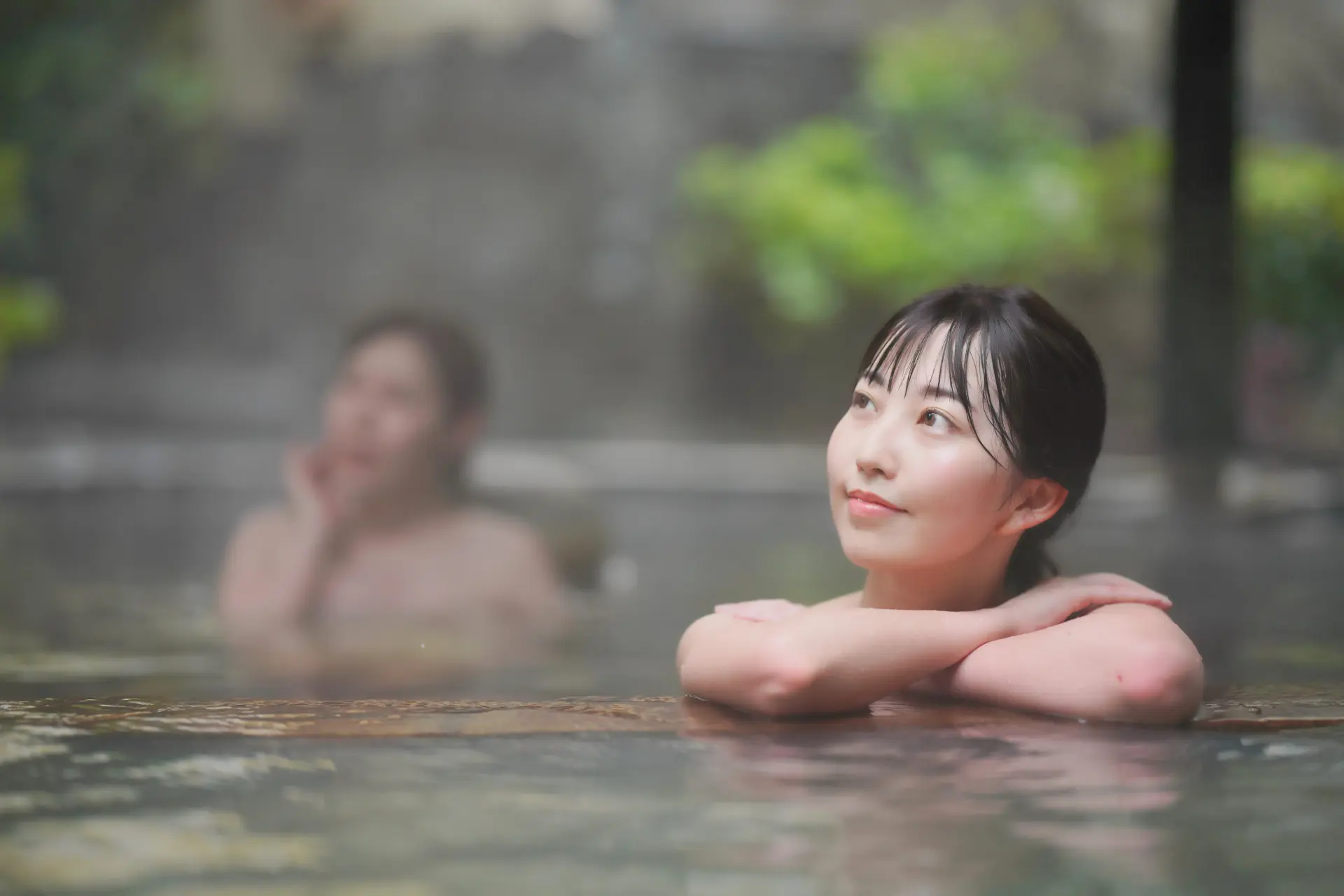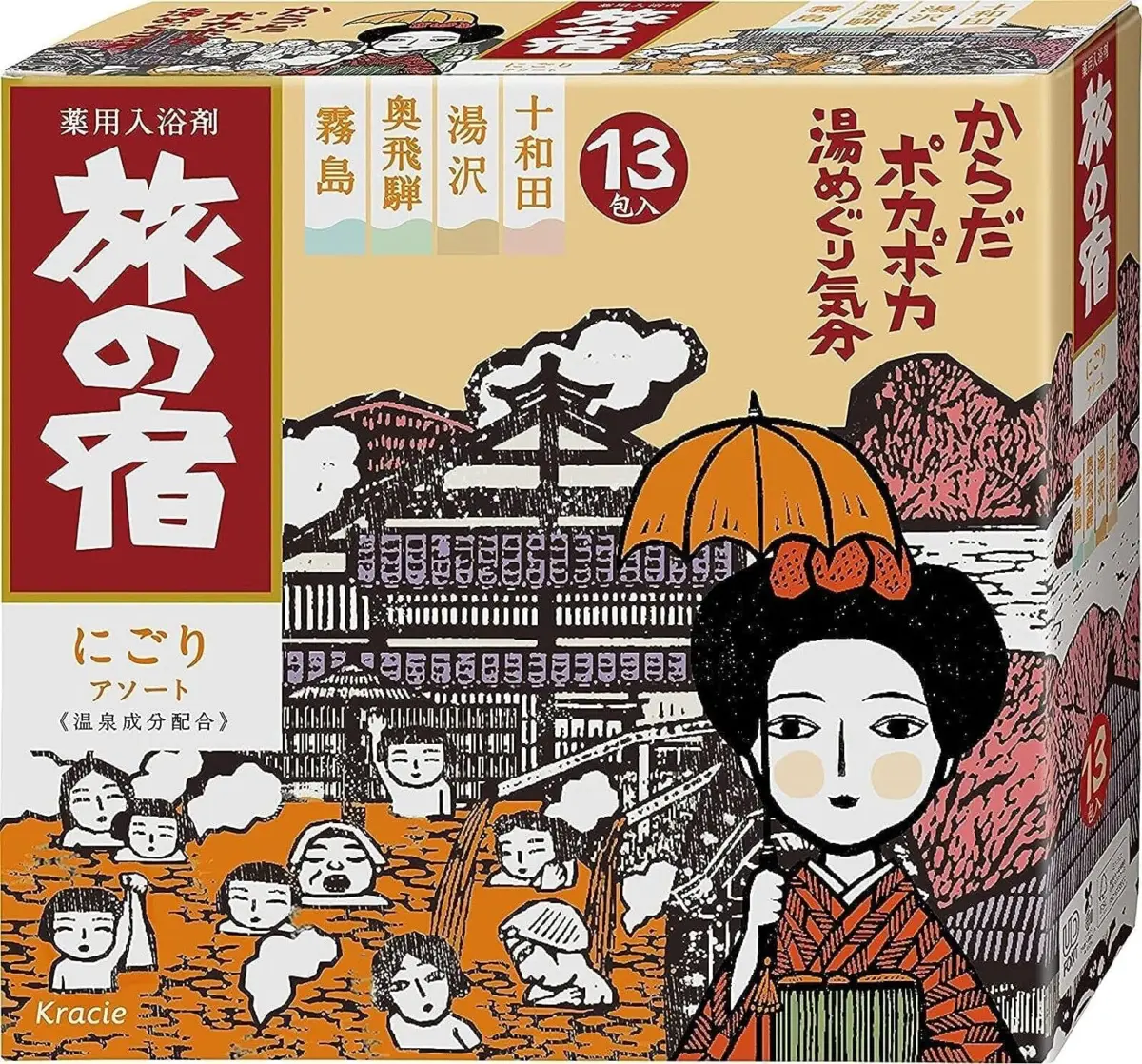Visiting a Japanese onsen is a unique cultural experience.
To fully enjoy it, it’s important to follow the correct etiquette.
Here’s a simple guide to help you relax and make the most of your visit.
1. Understanding Onsen Culture
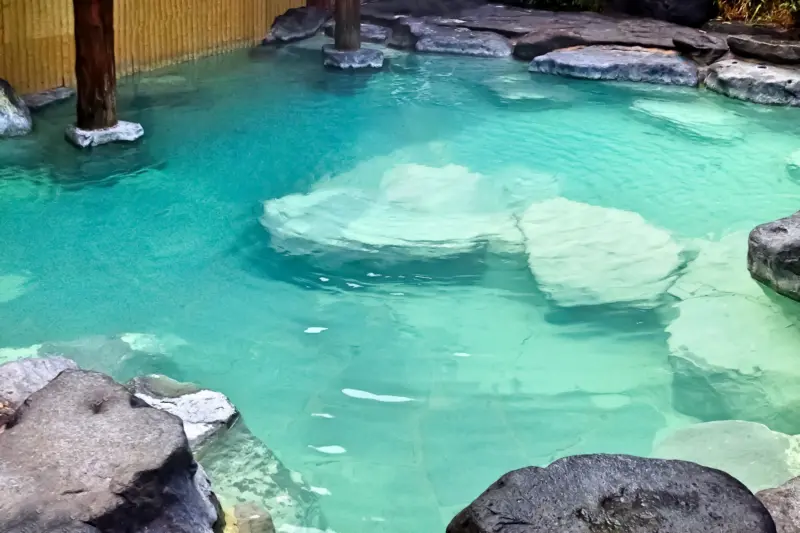
Onsens are traditional hot spring baths deeply rooted in Japanese culture.
They’re known for their relaxing atmosphere and healing properties.
Onsens can be found in ryokan (traditional inns), public bathhouses, and hot spring resorts across Japan.
Pre-Bath Preparations

Remove All Clothing: Onsens require full nudity. Use the changing rooms to undress and store your clothes in lockers or baskets.
Bring a Small Towel: Use a small towel to cover yourself modestly when walking around, but do not put it in the onsen water.
Shower First: Before entering the onsen, wash your body and hair thoroughly at the provided shower stations. This keeps the bathwater clean for everyone.
3. Bathing Etiquette
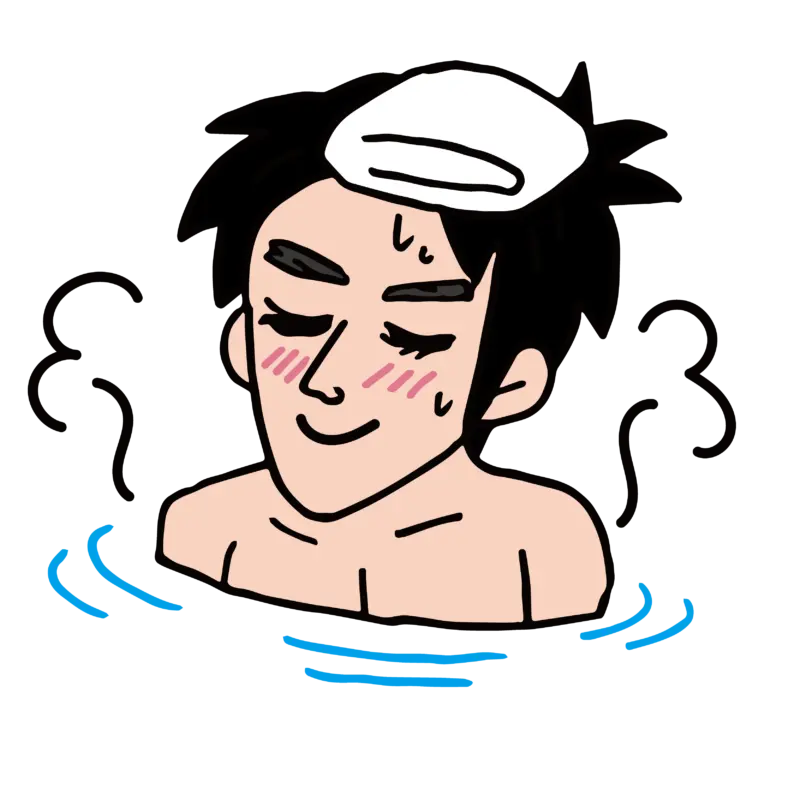
- Enter Slowly: Step gently into the warm water, allowing your body to adapt to the heat. Be mindful not to create splashes.
- Keep Quiet: Hot springs are meant for relaxation. Speak in a low voice and keep conversations to a minimum to maintain the tranquil atmosphere.
- Respect the Space: Avoid activities like swimming or playing in the bath. Treat the bathing area with care and consideration.
4. Post-Bath Practices
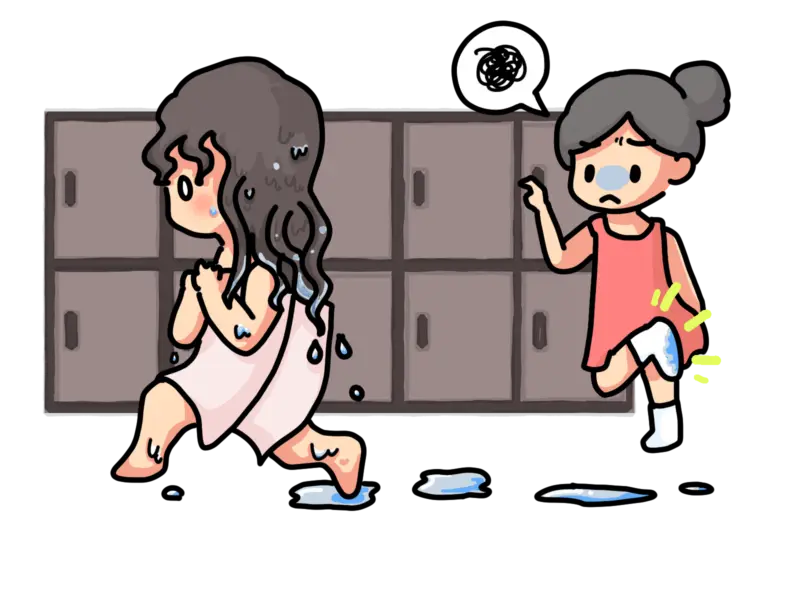
- Hydrate: After bathing, replenish your body by drinking water or tea, as the hot water can be dehydrating.
- Stay Hydrated: Drink water or tea after your bath, as the heat can dehydrate you.
- Take Breaks: Don’t stay in the water too long to avoid dizziness or discomfort.
- Dry Off Before Entering Changing Area: Use your small towel to wipe off excess water before returning to the changing room to keep the area dry and comfortable for others.
5.Additional Notes
- Tattoos: Some onsens may not allow people with tattoos due to cultural reasons and historical associations. However, tattoo-friendly onsens are becoming more common in Japan.
To understand more about why tattoos are often restricted in Japan and how you can navigate these rules, check out Why Tattoos Are Often Not Allowed in Japan. - Health Considerations: Avoid onsens if you have open wounds, skin conditions, or if you’re under the influence of alcohol.
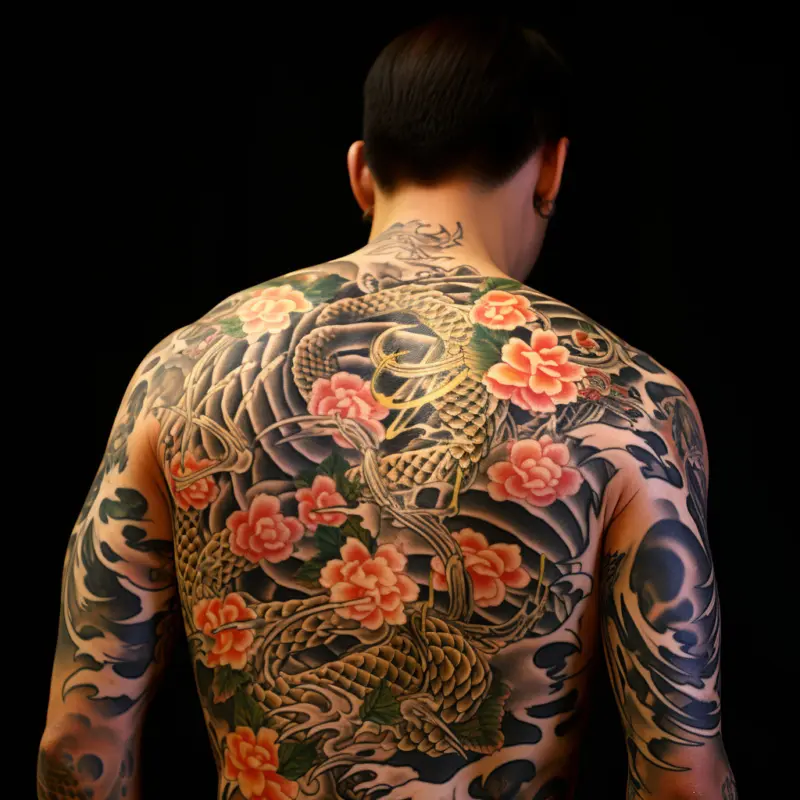
FAQ
No, swimsuits are not allowed. Onsens follow traditional customs, so nudity is required.
Some onsens allow tattoos, but others may not. Look for tattoo-friendly options before visiting. To learn more, read Why Tattoos Are Often Not Allowed in Japan.
Feeling dizzy could be due to dehydration or staying in hot water for too long. Take breaks and drink plenty of water.
Bring a small towel and personal toiletries like soap and shampoo. Some onsens provide these items, but it’s good to check in advance.
If you forget anything, don’t worry! Most onsens sell or rent towels and other essentials at the front desk.
Where to Stay with Onsen Experiences
Hoshinoya Tokyo 【Luxury】
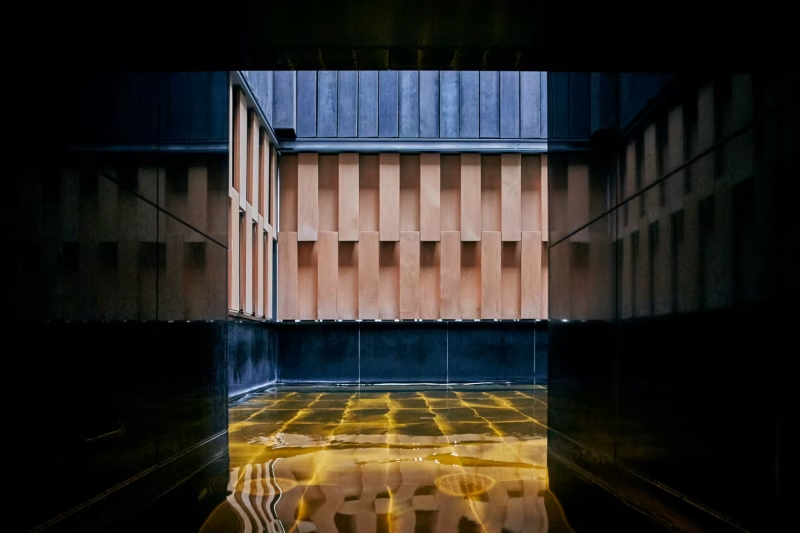
Hoshinoya Tokyo combines traditional Japanese design with luxurious modern amenities. Furthermore, the hotel offers an onsen on the top floor, allowing guests to relax while enjoying stunning views of the city.
In addition, its focus on wellness and relaxation, along with high-end service, makes this a perfect choice for those seeking a top-tier onsen experience in Tokyo. Whether you’re visiting for business or leisure, Hoshinoya Tokyo provides an unforgettable stay.
Gora Kadan 【Luxury】
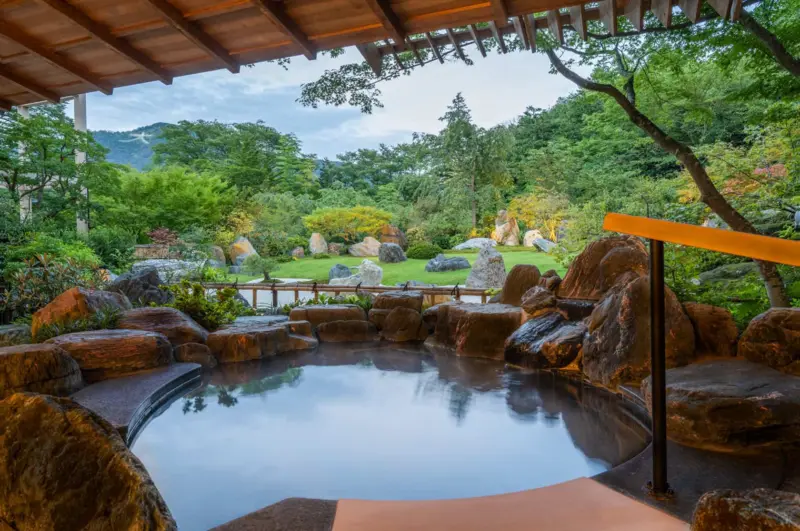
Located in Hakone, one of Japan’s most famous hot spring areas, Gora Kadan offers a luxurious ryokan experience with private onsens in some rooms.
Guests can enjoy relaxing hot spring baths, exquisite kaiseki meals, and the serene atmosphere of this beautifully restored ryokan, making it a perfect getaway for those seeking both culture and rejuvenation.
Kusatsu Onsen Hotel Sakurai 【Mid-Range】
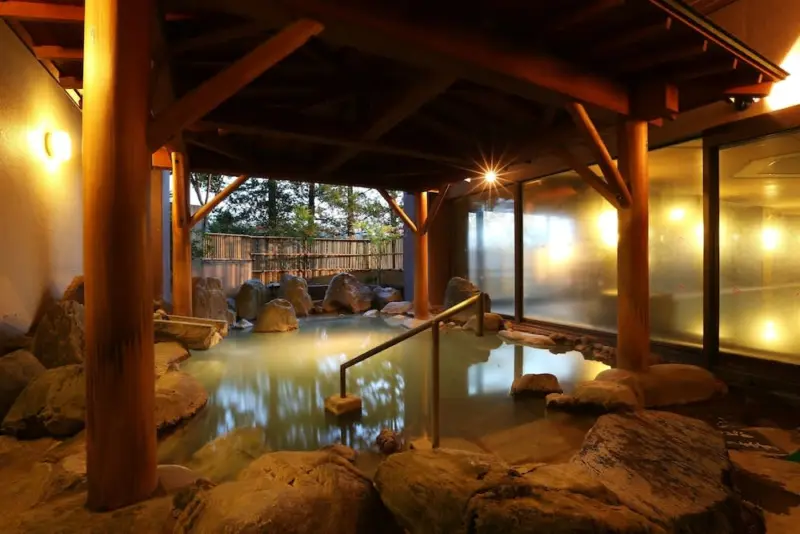
Kusatsu Onsen, one of Japan’s most famous hot spring resorts, is home to the renowned Hotel Sakurai. Moreover, this ryokan offers a range of traditional onsen baths, including private options, and a relaxing ambiance that is ideal for both couples and families.
Additionally, Kusatsu Onsen is known for its therapeutic waters, which promise a soothing experience for all guests. Whether you’re visiting for relaxation or a cultural retreat, this destination has something to offer everyone.
Ibusuki Hakusuikan 【Mid-Range】
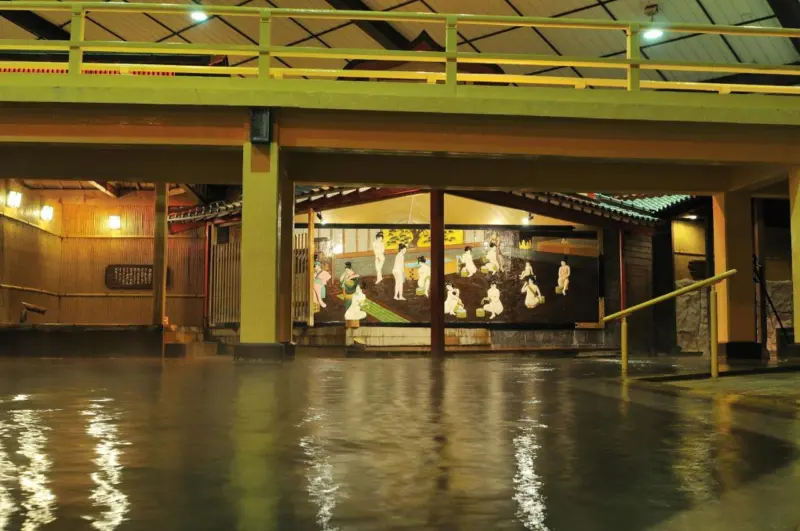
Located in Ibusuki, Kagoshima, this ryokan is famous for its unique “sand baths” where guests are buried in naturally heated sand before enjoying a relaxing soak in the onsen.
With beautiful seaside views and relaxing hot springs, this ryokan offers an unforgettable onsen experience in one of Japan’s most scenic areas.

